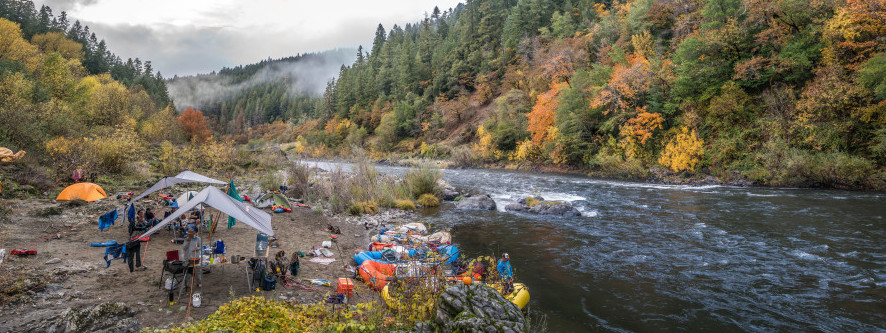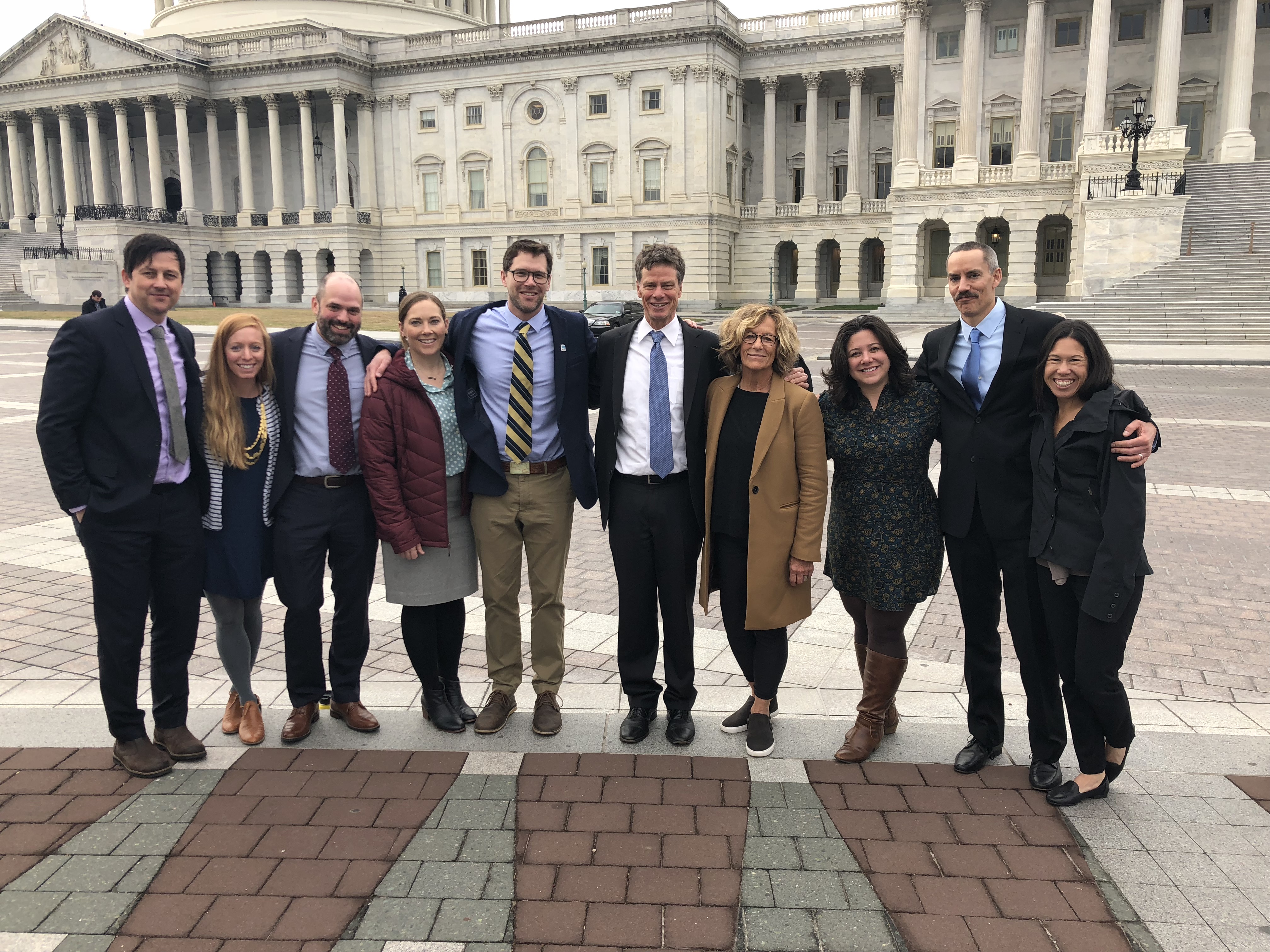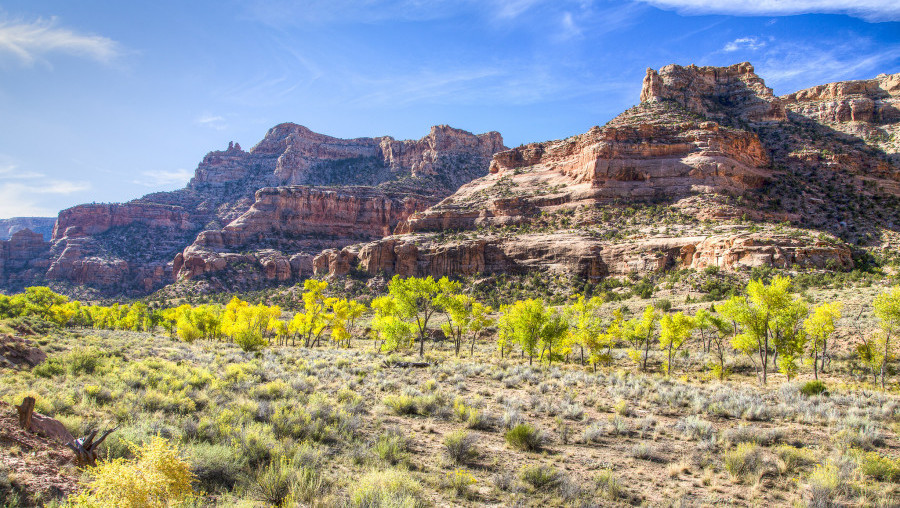We are excited to report that, as we near the end of 2018, a Congress notable for doing very little is working to develop and pass a package bills that could reauthorize the Land and Water Conservation Fund while protecting nearly two million acres of public land. Exactly what bills make it into that package is uncertain, but we are encouraged that members of the relevant Senate and House committees are working overtime to give these initiatives a chance to cross the finish line before Congress goes home for the holidays. Keep reading to learn more, or click here to take action.
The Conservation Alliance has funded many efforts over the past decade to protect public lands, and to designate waterways under the Wild and Scenic Rivers Act. To secure these protections requires an act of Congress, which takes time, patience, and the right opportunity. That opportunity seems to be upon us as a handful of well-positioned members of Congress want to see their conservation bills pass in 2018, at the same time that Congress must pass a bill to fund the government by December 21 to avoid a government shutdown over the holidays.

There are two committees in Congress—Senate Energy and Natural Resources (ENR) and House Natural Resources (HNR)—that are responsible for the bulk of the bills that we care about. Right now, the staff for those committees, both Democratic and Republican, are working on negotiating a package of bills that could potentially be attached to the bill to fund the government. The Conservation Alliance has provided funding and advocacy support for several of the bills that are being considered for inclusion in this package are, including:
- Permanent Reauthorization of the Land and Water Conservation Fund (LWCF): LWCF, which expired in September, provides matching grants to federal, state, and local governments to acquire lands and waters for recreation and habitat.
- The Emery County Public Land Management Act: This bill would protect 972,335 acres in Emery County, Utah, covering most of the iconic San Rafael Swell.
- The Wild Olympics Wilderness and Wild & Scenic Rivers Act: This bill would protect 126,000 acres of Wilderness and 469 river miles on Washington’s Olympic Peninsula.
- The Yellowstone Gateway Protection Act: This bipartisan bill would permanently ban mining on 30,000 acres of National Forest lands in the headwaters of Yellowstone National Park.
- The San Juan Mountains Wilderness Act: This bill would protect 60,000 acres in the heart of the San Juan Mountains in Colorado.
- The Oregon Wildlands Act: Several areas in Oregon totaling 226,920 acres and 252 river miles would be protected by this bill, including the Rogue River Watershed, Devil’s Staircase, and the Molalla and Chetco Rivers.
- The Organ Mountains-Desert Peaks Conservation Act: This bill would designate 241,067 acres of Wilderness within the Organ Mountains-Desert Peaks National Monument in New Mexico.
- The California Desert Protection and Recreation Act: This bill would designate 278,230 acres of Wilderness, expand Deth Valley and Joshua Tree National Parks, and designate 77 miles of Wild and Scenic Rivers in the California desert.
- The Recreation Not Red Tape Act: This bill would protect and improve outdoor recreation on public lands by, among other things, improving permitting for outfitters and guides and adding a a recreation mission to land management agencies currently lacking one.
See our year-end legislative priority list here.
We haven’t seen a public lands conservation opportunity on this scale since the passage of the Omnibus Public Lands Management Act of 2009, which protected three million acres of land and 1,000 river miles nearly a decade ago. We took advantage of this opportunity and hit the Hill a couple weeks ago with employees from Conservation Alliance member companies, Outdoor Industry Association, and our human powered recreation friends from Outdoor Alliance, to demonstrate strong support for such a package.

For a public lands package to pass, two things need to happen:
- Republicans and Democrats on the two key committees need to come to an agreement on what’s in the package, and
- Leadership has to agree to bring this package to the floor along with the government funding bill.
Nothing is a sure thing here, but there is solid momentum and passing a public lands package is definitely within reach. To make it all work, though, both parties have to see things they want as part of this package. Fortunately, the initiatives listed above have broad support, and are driven by key members of the Senate and House.

The Emery County bill may be a linchpin for the whole public lands package, because the Senate sponsor, Senator Orrin Hatch (R-UT), is chair of the powerful Senate Finance Committee, and is retiring at the end of the year. Senator Hatch’s bill is the largest potential piece of the package, and would deliver significant gains for conservation and outdoor recreation.
A lot of chips need to fall into place before we can head into the holidays celebrating historic public lands protections. We’ve made it easy for you to send a message to key D.C. decision makers to help make it happen!


